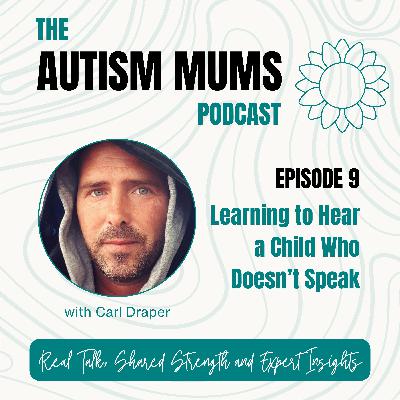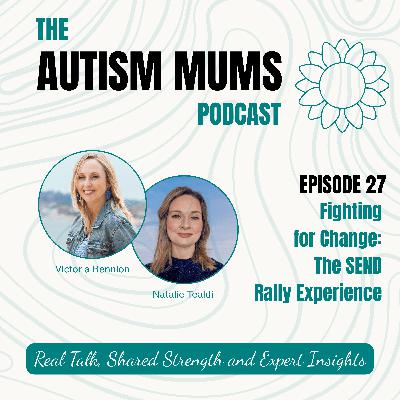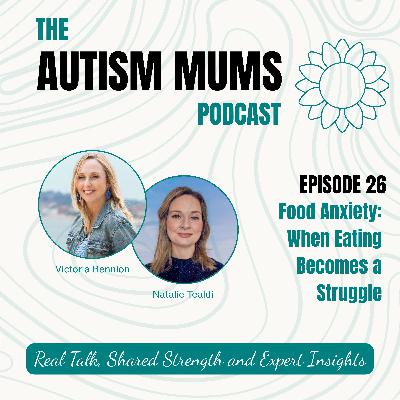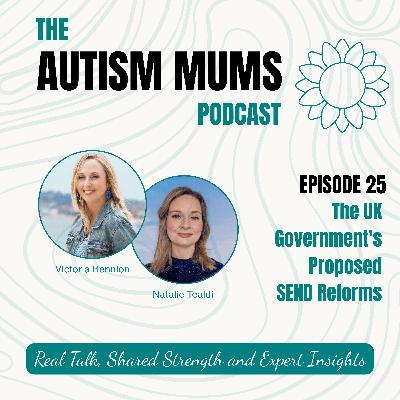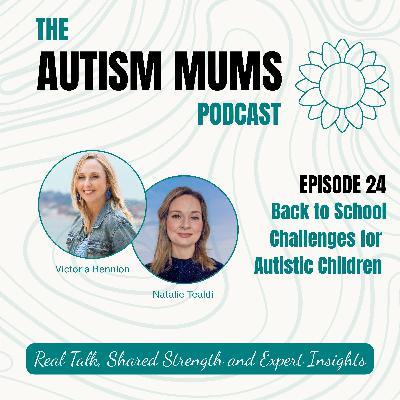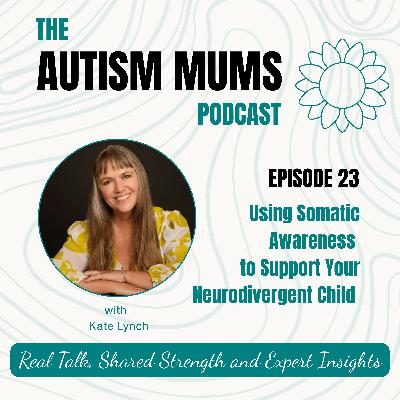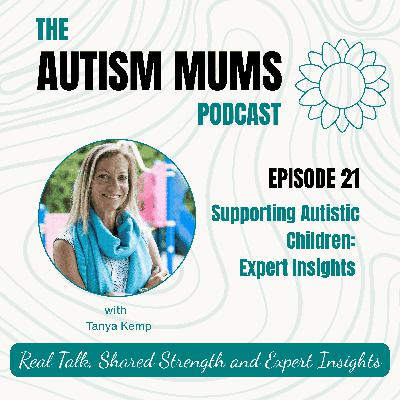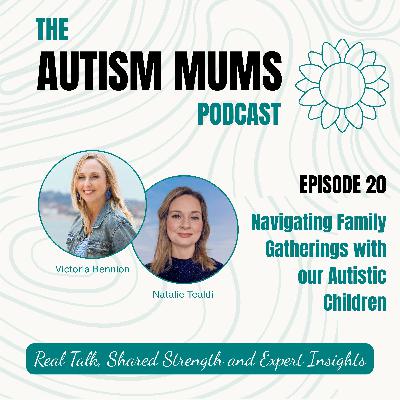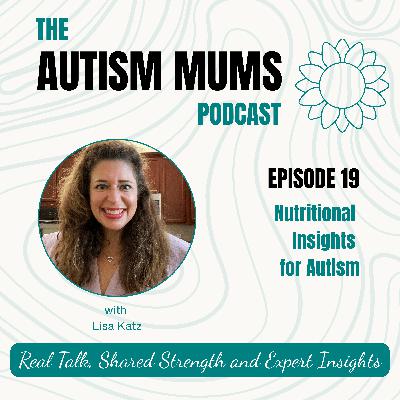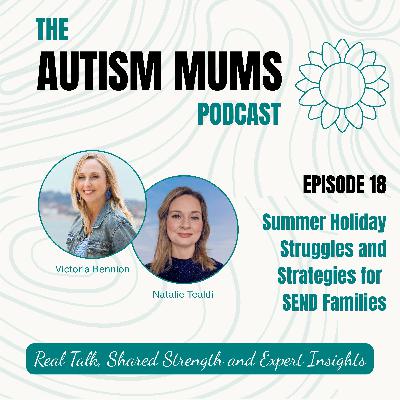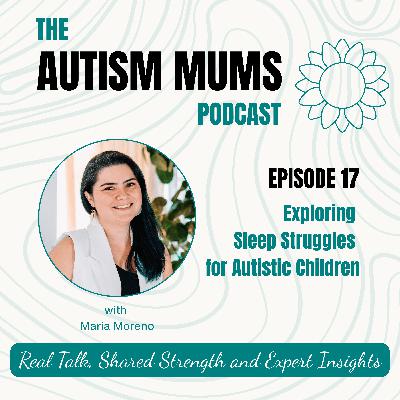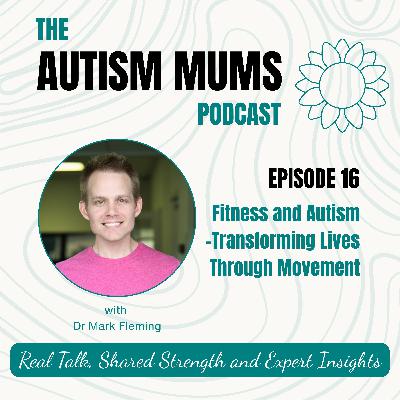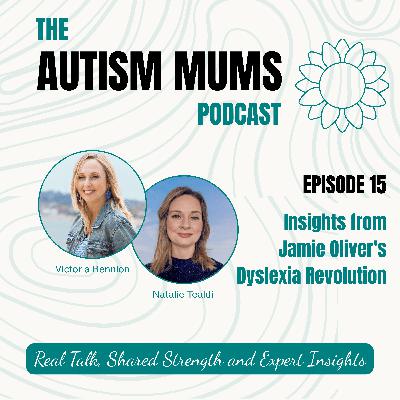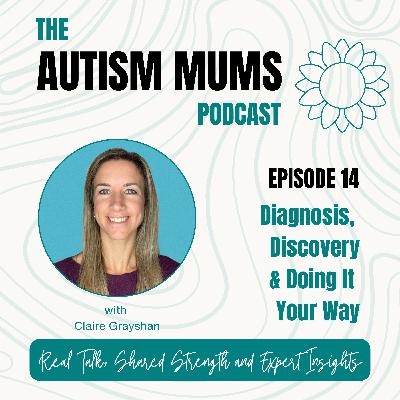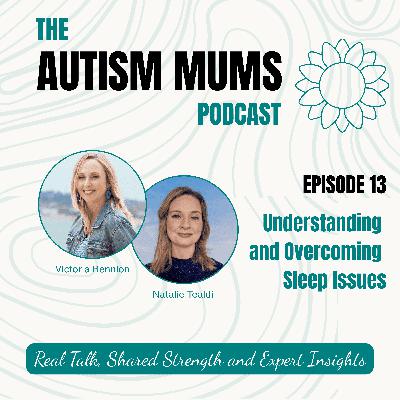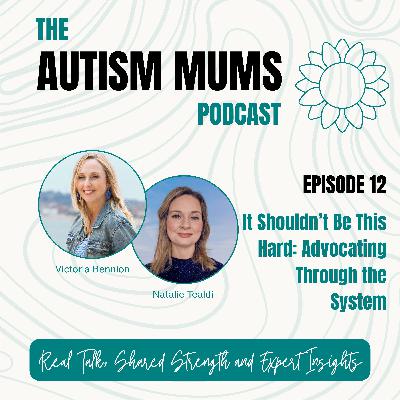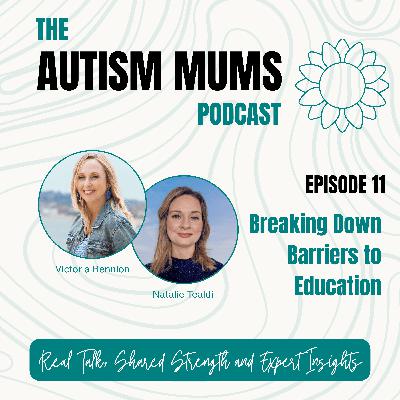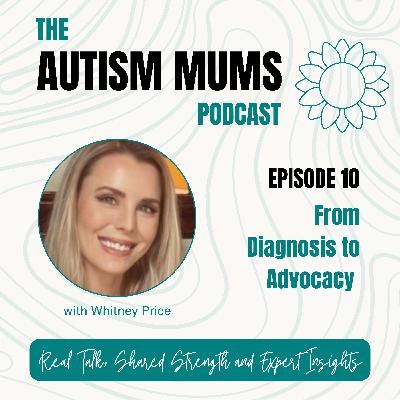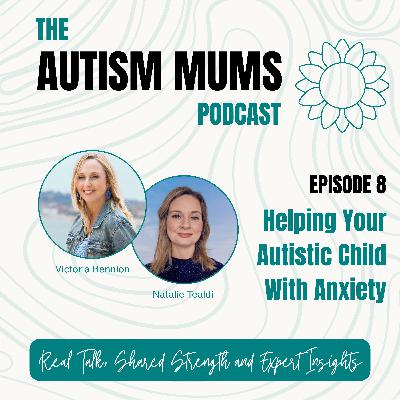Learning to Hear a Child Who Doesn’t Speak with Carl Draper
Description
In this week's episode of The Autism Mums Podcast we welcome Carl Draper, student mental health nurse, award-winning photographer and father to Bodhi, an autistic child with a powerful story.
Carl opens up about the early signs of autism in his son, facing expulsion from nursery on day one and the intense stress of parenting a non-verbal child with little sleep or support.
He shares how a pivotal moment with his camera led to a personal breakthrough.
Biography
Carl Draper was born in a North Nottinghamshire mining village and moved to Bournemouth at 19, where he served as a beach lifeguard and discovered his love for surfing. Accepted into the Royal Marines, his plans changed after a serious leg injury during a heroic rescue, an event that earned him a Local Hero Award and a feature on BBC’s 999 Rescue. He later became RNLI head trainer for lifeguards across Dorset, then served over a decade with Dorset Ambulance Service. Shifting to education, he trained firefighters and police nationwide before retraining as a mental health nurse. Carl is currently studying at Bournemouth University. In 2015, he founded Waveslider, winning the Bournemouth Tourism Award in 2017, and began documenting life with his son Bodhi in 2020.
Quote
I’ve always had this thing with special educational needs parents or SEND parents — we’re not in the same boat, but we are in the same storm. - Carl Draper
Key Takeaways
Trust Your Instincts - Parents often notice signs before professionals do. If something feels off, it’s okay to seek answers and push for support.
Environment Shapes Experience - The right setting and supportive people can help a child thrive.
Diagnosis is a Beginning, Not an End - Receiving a diagnosis can bring clarity, but also grief and uncertainty. It marks the start of a new chapter, not the end of a story.
Regulation Starts With Us - Emotional regulation in ourselves is often needed when supporting a child with complex needs. We can’t pour from an empty cup.
Creativity is Healing - Photography can offer a way to pause, reflect and process life. Creative outlets are powerful tools for emotional resilience and self-regulation
Assistance Dogs can offer deep connection, comfort, and safety to children with additional needs.
Advocacy Requires Persistence - Navigating the SEND system often involves battles, persistence and support.
Mentioned in This Episode
CAMHS / ID CAMHS – Child and Adolescent Mental Health Services, including services for children with intellectual disabilities
Von Kebles – The training center supporting Frank, Bodhi’s assistance dog
Connect with Carl Draper
Follow Carl's journey with his son Bodhi on the Waverslider Photography Facebook Page
Follow Carl on Instagram
Connect with The Autism Mums
https://theautismmums.com/
Follow us on Instagram https://www.instagram.com/theautismmums
Follow us on TikTok https://www.tiktok.com/@theautismmums
Follow us on Facebook https://www.facebook.com/theautismmums
Episode Transcript
[00:00:00 ] Hello and welcome to
the Autism Mums podcast. I'm Victoria. And I'm Natalie. We are two sisters
raising autistic children who know the joy, the challenges, and the everyday
moments. This is a supportive space for honest conversations, practical tips,
shared strength and expert advice. Whether you are celebrating a win, surviving
a meltdown, or just trying to make it through the day, we are right here with
you. Join us as we share the ups, the downs, and everything in between parenting autistic children.
Victoria Bennion:
Today, we're pleased to welcome to the podcast student Mental Health nurse Carl
Draper. Carl founded Wave Slider Photography in 2015, which won the Bournemouth
Tourism Award in 2017. Since 2020, Carl has been documenting his life with his
autistic son Bodhi through his stunning photography.
Welcome to the podcast, Carl. It's great to have you with us today.
Natalie Tealdi: Can you [00:01:00 ] share a bit about your
background and how it has shaped your parenting journey with Bodhi?
Carl Draper: Bodhi was born in 2017. By the time he was five, six months, we were convinced that Bodhi was autistic. He never made eye contact. He was just in his own little
world and he was silent. So there were, there were strong signs. I think the
health visitors and other people at the time, they were saying, oh, he is just
sure of himself and he's confident, but he, you know, there was zero eye
contact. It was almost like he'd intentionally wouldn't make eye
contact, which is quite strange for a baby of that age. It was that. It was
that strong and obvious. By the time he was two, he was completely silent. So
we were, more sure then that, that this was autism, that we were dealing with,
and this was gonna be a different kind of journey from a parenting
perspective..
Victoria Bennion: Did Bodhi go to nursery?
Carl Draper: His very first nursery he went to [00:02:00 ] was a
Montessori nursery, and he was expelled on day one, which is quite an
achievement for a 2-year-old you know, the social norms were expected that
you'd come in and sit at the table and kind of join in where he was just, he
was just constantly off.
Doing his own little thing in his own little bubble. Completely silent, no eye contact. So you were, you were just following him, containing him and, and trying to engage. So we picked him up at lunchtime and he was, he was in a complete state. The lady, who we picked him up from, she looked like she'd been dragged through her hedge backwards.
She was completely disheveled, completely stressed, and we never know until the day what happened there that day. But the one thing we have learned throughout our journey with Bodhi and the autism parenting, is that nothing impacts a child more than the behavior of those around him. And we are convinced that something happened there that [00:03:00 ]
day. We don't know what it was, but , it took days and days to settle him down. He was, completely devastated. So then we found another nursery for him. They were much better. It was a bigger class and it was more along the lines of, of play, nursery play rather than sit down at a table and learn to read and write.
So he, settled in there. More so because of the people that were looking after him. They were brilliant. And they helped the journey start,, with the referrals to the hospital. Poole, hospital for the autism diagnosis,
Victoria Bennion: Can you talk us through the autism diagnosis process that you went through with Bodhi?
Carl Draper: There was a doctor, speech and language therapist and an occupational therapist, and they had an outdoor playground, an indoor playroom, and a separate room with. Four chairs. And what they did is two of them would spend half an hour with
Bodhi. One of them would spend half an hour with us and they rotated around. There was two of everything toys wise. And we did say to them on the way through the door, be careful [00:04:00 ] with the digital key code because Bodhi had a thing for cracking codes. At the
time, you know, they, they kind of didn't believe us and said, you know, we're fine. We're used to this. Within five minutes he was out the building
Victoria Bennion: Oh my goodness.
Carl Draper: Yeah, they were off down the corridor chasing him.
Natalie Tealdi: Wow.
Carl Draper: He's got this strange ability where he doesn't remember, he doesn't fiddle around trying to figure it out. He just punches it in. It's like he almost knows it. And, uh, he, he was off, he was gone. We spent an hour and a half, two hours there, and they had a bit of a con flab debrief after, and he was diagnosed there.
And then, and I think that was the beginning of the stress from that parenting side because we were asking the questions that, I suppose everybody asking that scenario, when is he gonna speak? When are we gonna hear his voice? What comes next? And so we kind left. Left. Really? Then how do you learn to hear a child who doesn't speak?
There's no YouTube tutorial. There's no book. So [00:05:00 ] then we'd, you know, do the research and we didn't find any answers. So we started doing everything with pictures and
videos. We'd take videos of everything from putting your shoes on to going in the bath to go into the toilet. And that's, where it began.
Victoria Bennion:
What were some of your greatest challenges around this time?
Carl Draper: Car journeys were probably the worst at that time. He would try and get out the car while we were moving because again, he'

